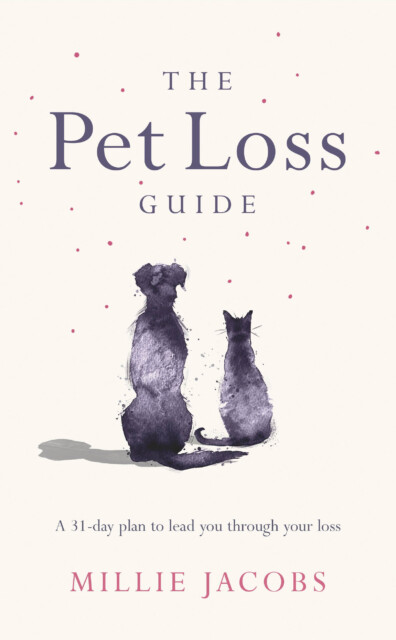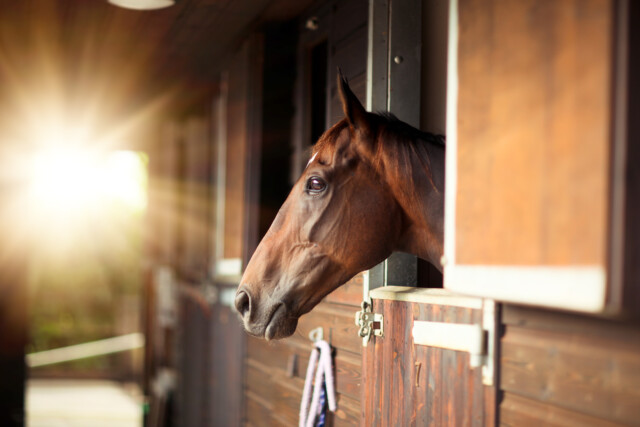HE is on a mission to help our pets . . . and is here to answer YOUR questions.
Sean, who is the head vet at tailored pet food firm tails.com, has helped with owners’ queries for ten years. He says: “If your pet is acting funny or is under the weather, or you want to know about nutrition or exercise, just ask. I can help keep pets happy and healthy.”
Today Sean helps a pet owner with a lonely horse
Sean McCormack, head vet at tails.com, promises he can ‘help keep pets happy and healthy’
Q) MY horse Blaze used to have our family goat Marge as a companion in her paddock, but she has passed away. Should we get her a new friend?
Babs Brown, Lincoln
Sean says: Absolutely. Horses are social beasts. But better than a goat would be another horse or pony.
Goats are goats, donkeys are donkeys, horses are horses. They all get on best with their own kind. And need their own kind.
I know a goat may be less expensive and time consuming but it’s not an ideal companion.
Could you look at finding another owner in the area who wants to buddy up and share paddocks if Blaze gets along with their horse?
Q) CAN I feed my cat Bob and dog Max cheese?
Max loves it and even Bob likes a bit now and again. I only give a tiny amount — but is it OK?
Sue Smith, Glastonbury, Somerset
Sean says: Sorry to be a party pooper, but it’s not really a good option for cats or dogs, even though they tend to love it.
First off, both species are largely lactose intolerant so they don’t digest cheese very well and it can cause mild upsets. Secondly, it’s quite high in fat and therefore calories so can be a big contributor to obesity in pets when given regularly.
If you imagine feeding Bob your cat a single cube of cheese, that’s probably the equivalent of us eating two to three cheeseburgers.
It’s like us eating a whole sausage in terms of daily calorie allowance.
So I’d hold off on the cheese, and treat him instead with a lean, healthier meat snack — or for Max crunchy veg like carrot or green beans, especially if he’s overweight.
Q) DOES my cat like me? He only purrs when I’m getting breakfast or dinner out.
Otherwise I might as well not exist.
Apart from smothering myself in catnip, any idea how I can be friends with him?
Maggie Edgcumbe, Stoke
Sean says: This comes up a lot, and I always say “dogs have owners, cats have staff”.
Some cats just don’t feel the need for much interaction with us other than at feeding time, they are all different but largely independent little creatures by nature.
It’s a pity when there’s a mismatch between an aloof cat and a needier owner, but you have to embrace it for what it is — room mates rather than best friends.
It would be interesting to try withholding all interaction or affection from him for a couple of weeks (apart from feeding and caring for him obviously!) to see if he changes his tune.
You could also see if playing with him using fishing-rod toys and the like might change how he sees you.
Q) OUR 18-month-old Border Terrier suffers from car sickness.
He’s not anxious or scared but after about 20 minutes of driving he will be poorly.
We have tried various anti-sickness tablets, and sprays, and we always travel when his stomach is empty, the car windows are down and he’s seated so he can see the horizon.
Do you have any ideas? We would love to be able to take him out and about more, but not with him suffering so.
Chrissy Cass, Isle of Wight
Sean says: I wonder if you tried any medications from your vet, or just over-the-counter remedies from a pet shop?
 Tails.com provides tailor-made nutritional food for pets
Tails.com provides tailor-made nutritional food for pets
If the latter, some are not so effective, especially the herbal or homoeopathic ones.
There are some better options available on prescription. Otherwise it sounds like you are doing everything right, and from what you’ve said it’s not likely to be behavioural.
Some dogs are just nauseous in the car, so I’d recommend trialling an anti-emetic medication from your vet to see if that works.
Star of the week
GUIDE dog Marine has transformed the life of his partner – leading him to lose 10st and live again.
Four years ago, Carlos Rodriguez, 42, from Paisley, Renfrews, struggled with his sight loss, was 27st and felt severely depressed.
 Guide dog Marine is the star of the week by transforming the life of his partner
Guide dog Marine is the star of the week by transforming the life of his partner
But when the five-year-old pup came into his life Carlos said it was like a “new world opened up”.
He added: “I am now 16st and walk 10 to 20km daily. Thanks to Marine, I have engaged in so much, such as museums, cinemas, charity walks, or just travelling to the beach to let Marine have a play in the water. To me that is priceless.”
Marine was given her name under Guide Dogs’ Name A Puppy scheme.
Visit guidedogs.org.uk/nap to find out more.
TIPS FOR COPING WITH PET DEATH
COPING with the death of a beloved pet can feel overwhelming. But now a new Orion book, The Pet Loss Guide, written by grief counsellor Millie Jacobs, aims to help.
Millie says: “Some of us may feel embarrassed about the grief we feel from losing a pet and others may feel that it’s not a major loss.
 Grief counsellor Millie Jacobs wrote The Pet Loss Guide to help owners deal with grief
Grief counsellor Millie Jacobs wrote The Pet Loss Guide to help owners deal with grief
“But let me assure you that the grief from losing an animal is not a different or lesser form of grief. It needs to be processed and understood.
“If you are grieving the loss of a pet, I would encourage you to be an active participant in processing your grief. The more you consciously face the pain, the quicker you will emerge from the blackest part of the grieving process.”
Here are some simple practices Millie hopes may help you . . .
1. Keep a journal of your grief. Be honest, and don’t feel ashamed at the strength of your emotion. Give yourself space to process your feelings.
2. Write down everything you remember about your pet, from its favourite toy to where it loved to sleep and its quirky habits. This is not wallowing, rather allowing yourself to truly feel the loss.
3. I say grief is the ultimate life sieve – it shows people’s true characters. Find that friend who listens to you talk about your loss, and let them know how much you appreciate them.
4. Cry. Never be embarrassed to let the tears flow. It helps your body release the hormones and chemicals associated with grief and loss.








